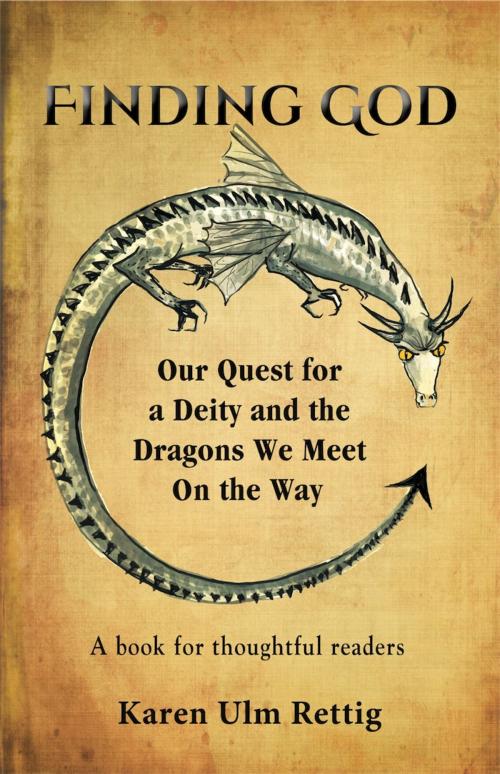FINDING GOD: Our Quest for a Deity and the Dragons We Meet On the Way
Nonfiction, Religion & Spirituality, Christianity, Christian Literature, Fiction & Literature, Poetry, Inspirational & Religious| Author: | Karen Ulm Rettig | ISBN: | 9781634905374 |
| Publisher: | BookLocker.com, Inc. | Publication: | October 13, 2015 |
| Imprint: | Language: | English |
| Author: | Karen Ulm Rettig |
| ISBN: | 9781634905374 |
| Publisher: | BookLocker.com, Inc. |
| Publication: | October 13, 2015 |
| Imprint: | |
| Language: | English |
Where is God? Why is He silent? These questions become personal to the author when she receives a soul-stirring call from God, then hears nothing more. The story of her quest opens a work that is unlike anything on today’s shelves. "Finding God" is a broad assessment of modern man’s relationship with God, a shrewd analysis that is also literary. It is a fusion of faith and art, of metaphor and logic, and it presents serious observations using rich, often playful imagery. Its whimsical approach makes it especially popular with readers of fiction and fantasy. Through use of metaphor, "Finding God" brings abstract ideas into sharp focus. It shows how science and reason, those worthy agents of progress, can nudge us towards materialism. It peeks under the skirts of free will to reveal how we sidestep awkward truths. And it turns the tables on conventional moralizing by picturing our rift with God from His perspective. Through it all, the author weaves an account of her relationship with Him, an everyday, down-to-earth mysticism. The God she portrays is neither silent nor remote. Rather, He seeks rapport with each of us and is always ready to battle dragons that bar His way.
Where is God? Why is He silent? These questions become personal to the author when she receives a soul-stirring call from God, then hears nothing more. The story of her quest opens a work that is unlike anything on today’s shelves. "Finding God" is a broad assessment of modern man’s relationship with God, a shrewd analysis that is also literary. It is a fusion of faith and art, of metaphor and logic, and it presents serious observations using rich, often playful imagery. Its whimsical approach makes it especially popular with readers of fiction and fantasy. Through use of metaphor, "Finding God" brings abstract ideas into sharp focus. It shows how science and reason, those worthy agents of progress, can nudge us towards materialism. It peeks under the skirts of free will to reveal how we sidestep awkward truths. And it turns the tables on conventional moralizing by picturing our rift with God from His perspective. Through it all, the author weaves an account of her relationship with Him, an everyday, down-to-earth mysticism. The God she portrays is neither silent nor remote. Rather, He seeks rapport with each of us and is always ready to battle dragons that bar His way.















